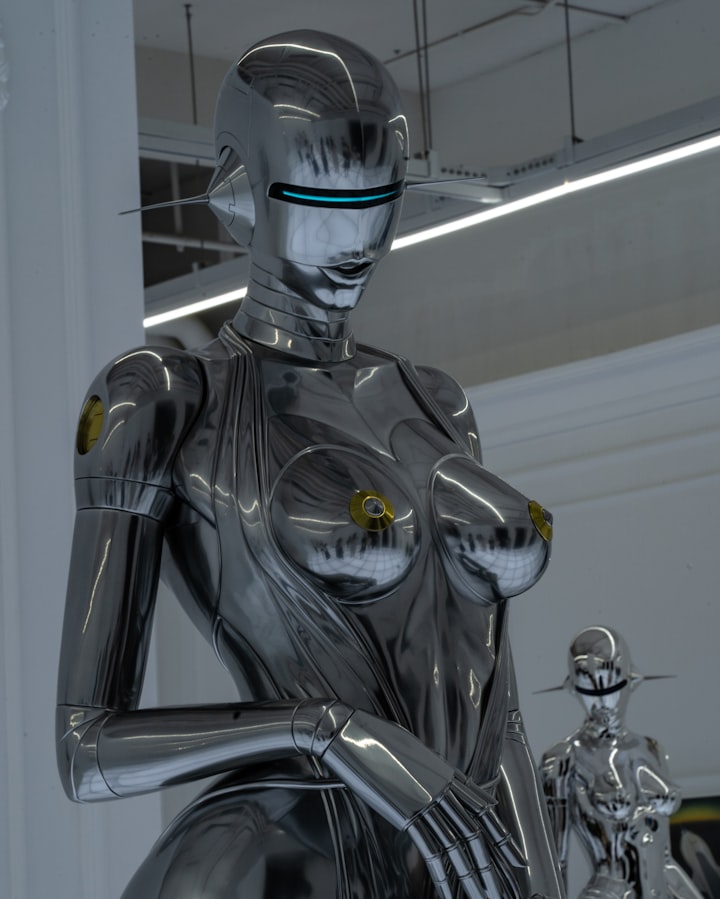Will AI eventually take over humans?
Human society and AI
The topic of artificial intelligence (AI) and its potential to replace humans is intricate and multidimensional, encompassing ethical, philosophical, and technological aspects. There is no proof, as of my most recent knowledge update in January 2022, that artificial intelligence (AI) is headed towards a takeover of human intelligence. To comprehend the state of AI now, possible advancements in the future, and the moral ramifications of the development of increasingly complex AI systems, it is necessary to investigate a number of facets of this issue.
AI cannot achieve global intelligence similar to human cognition in its current form. The artificial intelligence (AI) systems of today are specialised instruments made to do particular functions, such playing board games, picture identification, and natural language processing. Although these systems are highly proficient in their assigned fields, they do not possess the comprehensive comprehension, inventiveness, and flexibility that define human intelligence.
The development of AI involves two primary approaches: narrow or weak AI and general or strong AI. Narrow AI is designed for specific tasks and is what we commonly encounter in everyday technology. General AI, on the other hand, would possess the ability to understand, learn, and apply knowledge across a broad range of domains, emulating human-like cognitive capabilities. Achieving general AI remains a distant goal, and researchers are still grappling with the fundamental challenges associated with creating machines that can truly replicate human intelligence.
The fear of AI taking over humans often stems from scenarios portrayed in science fiction, where sentient machines rebel against their creators. However, it is crucial to separate fictional narratives from the current reality of AI development. The field of AI is guided by ethical principles, and researchers actively work to ensure the responsible and safe deployment of AI technologies.
The idea of the "singularity," a fictitious moment in the future when artificial intelligence (AI) surpasses human intelligence and has possibly unmanageable and unanticipated effects, is one important thing to take into account. Experts discuss and speculate on the singularity, with views ranging from doubts about its possibility to worries about its possible dangers.
The direction that AI research takes is greatly influenced by ethical issues. The increasing integration of AI systems into diverse facets of society gives rise to inquiries concerning transparency, accountability, and the effects of AI on employment, privacy, and decision-making. Fostering a responsible and constructive approach to AI development requires addressing these ethical challenges.
Fairness, prejudice, and unforeseen implications are raised by the use of AI systems in vital sectors like healthcare, banking, and criminal justice. Unfair results may result from AI algorithms unintentionally perpetuating biases seen in training data. To address these ethical issues, researchers and practitioners are putting a lot of effort into creating algorithms that are accountable, transparent, and fair.
It's crucial to take into account how laws and policies affect how AI is developed and applied. International organisations and governments are investigating frameworks to control AI technology and guarantee their responsible usage. It is a tricky endeavour to strike a balance between innovation and ethical considerations, and continuous talks are intended to set norms that prevent the exploitation of AI while promoting further advancements.
Philosophical debates continue to surround the nature of consciousness and the possibility of machine self-awareness. Alan Turing developed the Turing test in the 1950s as a standard to evaluate whether a machine is capable of intelligent behaviour that is indistinguishable from human behaviour. It should be noted that passing the Turing test does not imply actual consciousness or understanding.
In conclusion, the subject of whether artificial intelligence will eventually replace humans is a complicated and dynamic one. Although artificial intelligence (AI) has advanced significantly in many fields, reaching human-level general intelligence is still a long way off. Regulations, continuing research, and ethical considerations all have a significant impact on how AI develops and how it fits in with society's requirements and human values. As technology develops, ethical and open methods are necessary to take use of AI's advantages while minimising its hazards.
About the Creator
Mohammed Din
Hi everyone i am new to vocal.media and i have over 20 years of experience in the banking industry.
i am married and have 2 children.
What i love the most is future technologies, human behaviour, cooking, religion, theology.






Comments
There are no comments for this story
Be the first to respond and start the conversation.